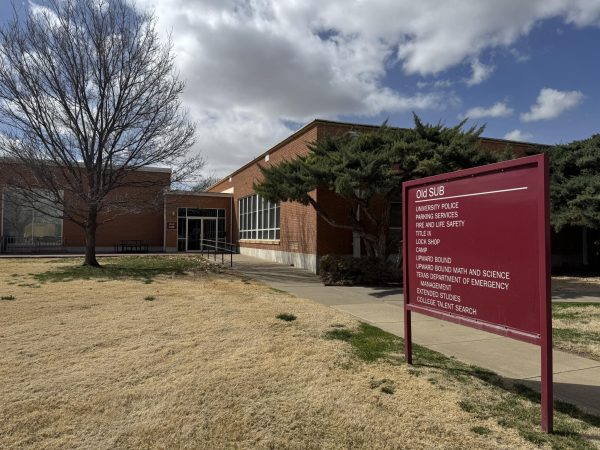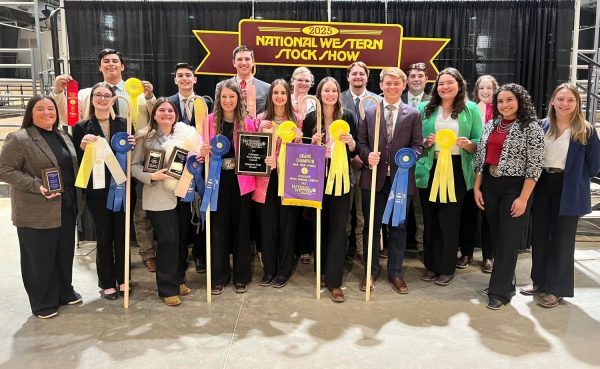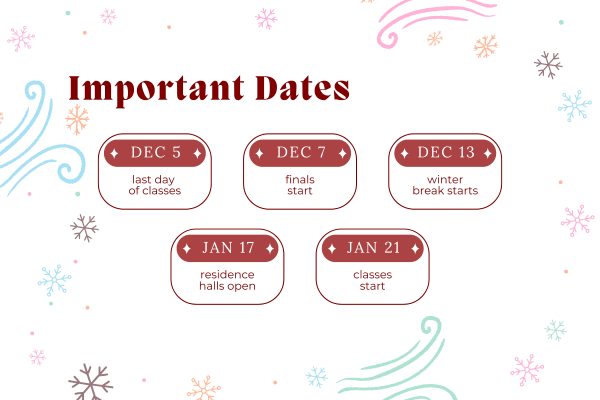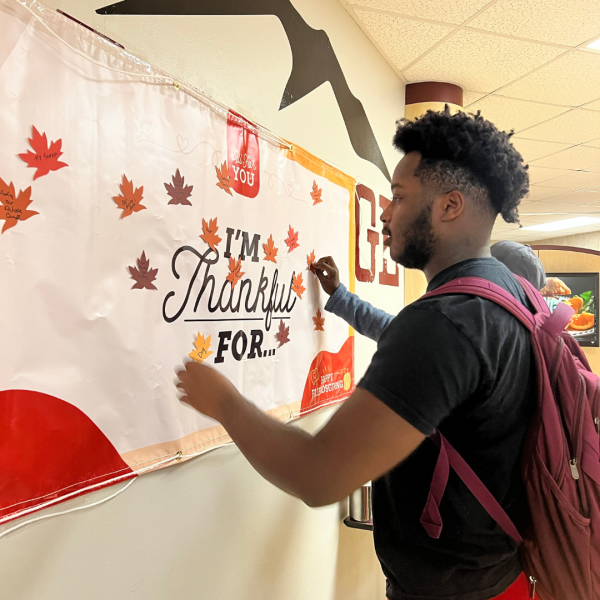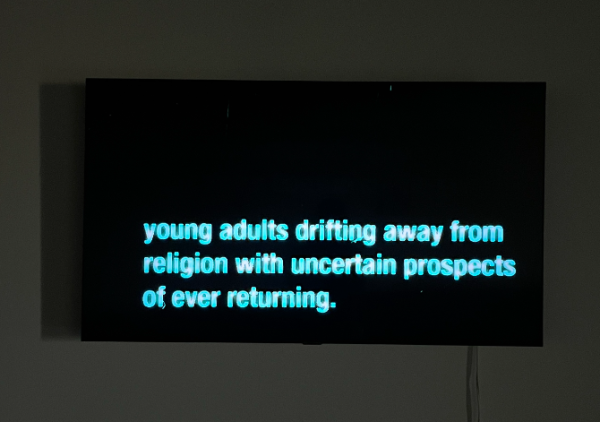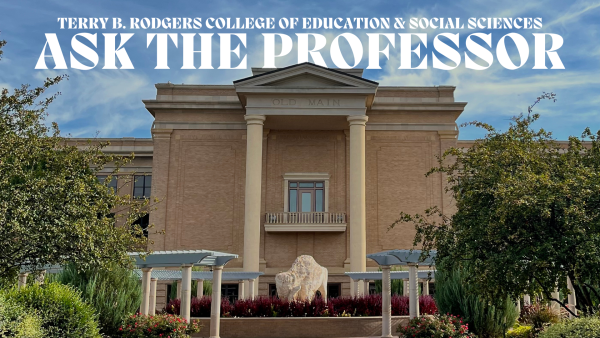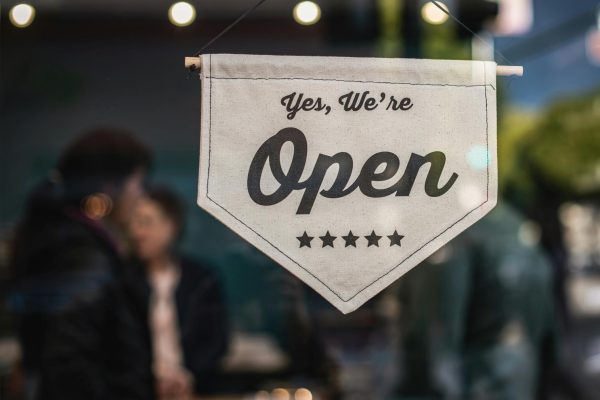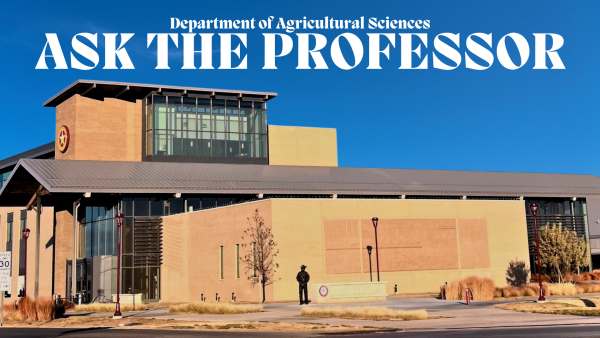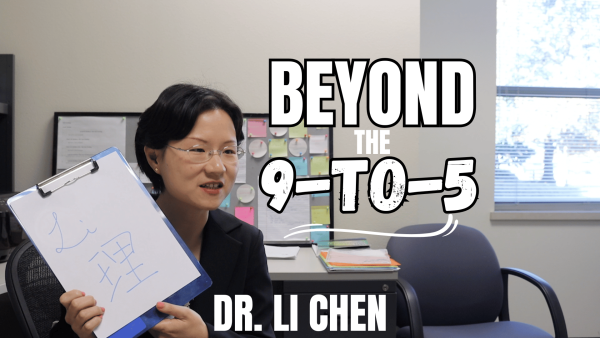Being an essential worker while attending college
Being an essential worker during the pandemic is hard enough but what about those that are also college students.
The struggles of being an essential worker during the pandemic is well documented but what about essential workers that are also students at colleges like West Texas A&M University and Amarillo College? Not only do they have to worry about going to classes and making the grade, they have to make sure they are able to go to the job that pays for those classes. Being a full time student with a job is already difficult, but one that keeps America from falling at a standstill can almost seem astronomical.
“At first, working in the pandemic was very scary. There was no real protocol for anything because the virus was so new,” said Sara Strickland, WTAMU alumnus and nurse at Baylor Heart and Vascular in Dallas, Texas. “Our hospital was also for elective surgeries mostly so we would have almost no patients or very minimal. Many of our nurses would have to go work on different floors.”
With cold and allergy season fast approaching, it makes it difficult for people to confirm whether they have been infected with the coronavirus or if they just have the sniffles. The symptoms of both cold and flu are similar to symptoms of COVID-19 so some people could be infected but really need the money from their jobs, so they go to work and potentially spread the virus. This stresses the importance of wearing masks, monitoring symptoms and washing your hands and surfaces.
“To ensure continuity of operations of essential functions, CDC advises that critical infrastructure workers may be permitted to continue work following potential exposure to COVID-19, provided they remain asymptomatic and additional precautions are implemented to protect them and the community,” according to the Center for Disease Control and Prevention website.
Essentially, employees who have been exposed to COVID-19 but are not showing symptoms can still go to work. They however must follow these practices before and during their shift: first off, tell the boss so they know to do these tasks, be prescreened by employers before entering the building, regularly monitor for symptoms, wear a mask at all times, practice safe social distancing and disinfect and clean work spaces. These suggestions can be found on the CDC website.
“We would also have patients that were so scared to come in they would wait till it’s too late. Now everyone’s initial panic is over,” Strickland said. “We are allowing visitors again which helps out patients’ anxiety when they can have loved ones near.”
There also falls the issue in which some employees would be feeling sick but didn’t want to tell their bosses because they needed the money for bills or tuition. Some workplaces require employees to quarantine and say away from work for a full 14 days or until they get a negative result on a COVID-19 test. That’s a whole paycheck missed if these sick days are not paid.
“When COVID-19 first broke out it was not a big deal to me at the time, I was busy studying in nursing school Monday-Friday and working Friday and Saturday nights as an aide at my local hospital,” said Issac Pacheco, junior nursing major at AC and licensed vocational nurse at Swisher Memorial Hospital in Tulia, Texas.
Some students are too busy worrying about their next test grade and making sure they studied enough for the upcoming test to worry about COVID-19. When colleges shut down after spring break, Pacheco’s first thought was to study more for the next exam and sleep when he could.
“Nursing school was already a struggle but doing it all online, that was going to be a challenge for sure I thought,” Pacheco said. The class lectures and online meetings were about the same as in person to me, even better because I am not a big fan of socializing. I will say it became old after the first week. I began to miss my friends and instructions who would motivate and make class so much more fun in person.”
For Pacheco, clinicals were a bigger challenge as it is much easier to understand everything from a book and an online video or journal than an actual person. He felt like online clinicals made him and his classmates miss out on a lot of great experience thanks to COVID-19. Pacheco also finds that he misses his classmates and studying with them since all of his classes have gone virtual.
“Being a nurse that works full time and going back to school to further my education I thought would be difficult in some aspects,” Pacheco said. “I am taking all online college classes and they’re great but, in another term, I’m nowhere near close to my classmates like I was in nursing school.”
Pacheco said he will not say balancing school and work is easy and that it can be difficult at times especially with a rough day at work and having to come home and do what assignments are due or write a paper. He said it is something you must do to motivate yourself and find a purpose to make you want to accomplish your plans. He also discussed the implications of coronavirus cases rising again.
“There is always a possibility for COVID to either become worse or better. Many healthcare workers and essential workers are afraid of what may happen should it grow worse, that increases our chances of getting sick. I cannot say that I know what will keep the world running and making life go on but as for being an essential worker it is scary, but I became a nurse to help others,” Pacheco said. “A pandemic is not in our job description, but it is not in anyones really. Neither are natural disasters, but we find a way to help those around us and keep moving forward. I knew the risk of becoming a nurse and the way I see it is I am there to help those who cannot help themselves in this difficult time. I am going to do my best to deliver the care people need in the stressful and uncertain times.”




